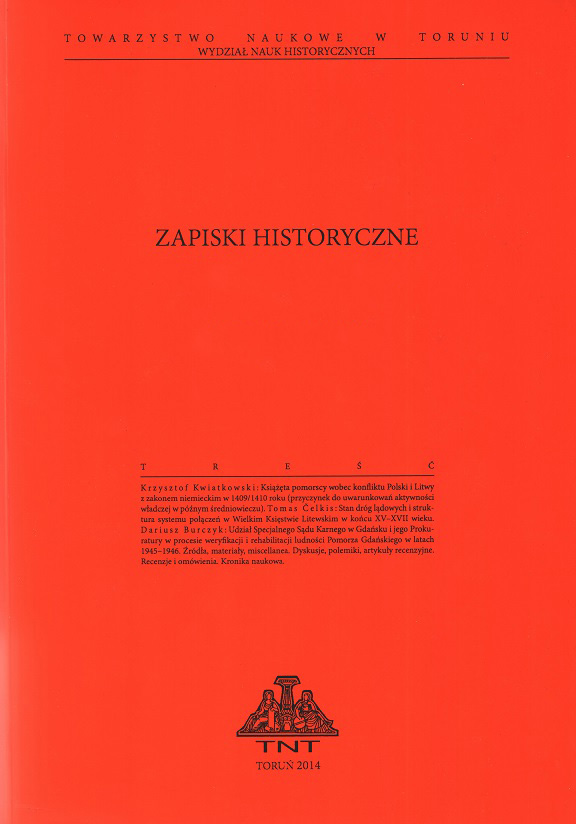Aspekte der Neuordnung des Kanzleiwesens im preußischen Ordensland nach dem 2. Thorner Friedensschluss
Aspects of the New Ordinance Concerning the Chancellery in the Monastic Teutonic State in Prussia after the Second Peace of Toruń
Author(s): Dieter HeckmannSubject(s): 15th Century
Published by: Towarzystwo Naukowe w Toruniu
Keywords: chancellery;the chancellery landscape;personal relations;double sounds;
Summary/Abstract: After the outbreak of the Thirteen Years‘ War there was created a certain kind of the Pomesan chancellery landscape. Its creation resulted from the tendency of various chancelleries to cooperate. The central point of the landscape was Marienburg’s [Polish: Malbork] chancellery of the Grand Master under the supervision of the clergyman and chancellor Andreas Santberg. He organized the manner of administering the written documentation with the help of public notaries, who had prepared the earliest files. The personal relations between the city chancelleries of the Monastic State and the Teutonic chancelleries may be noticed. The situation of the work of the chancellery during the Thirteen Years’ War was determined by extraordinary conditions. Preparing the registers of documents in the chancellery of the Grand Master was stopped. Instead of this, the number of drafts of documents increased. In the cities and towns which were most affected by the war events, it was hard to maintain the continuity in the production of documents. After the Grand Master moved to Königsberg, the preparations to set up a new registry office of the territorial ruler commenced. The chancellery’s personnel organized the administration of the documentations according to old models of the Sambian chancellery. One of the characteristic features of the German writing used during the war was the introduction of double sounds „nn” in the initial syllable and sometimes in the final syllable. After the conclusion of the Peace Treaty the process of the gradual secularization of the Grand Master’s chancellery could be observed. In the times of Friedrich von Sachsen educated lawyers were responsible for chancelleries following the models taken over from the Meissen motherland of the Grand Master. Under the rule of the margrave Albrecht people from Francophonie became trustworthy cooperators. They led to the gradual francisation of the language of the chancellery. Writing registers again became part of chancellery production. A new administration was created. Similar phenomena took place in case of writing production of the city chancelleries and other lay and church chancelleries at the end of the Teutonic period, which requires further research.
Journal: Zapiski Historyczne
- Issue Year: 81/2016
- Issue No: 4
- Page Range: 101-116
- Page Count: 16
- Language: German

